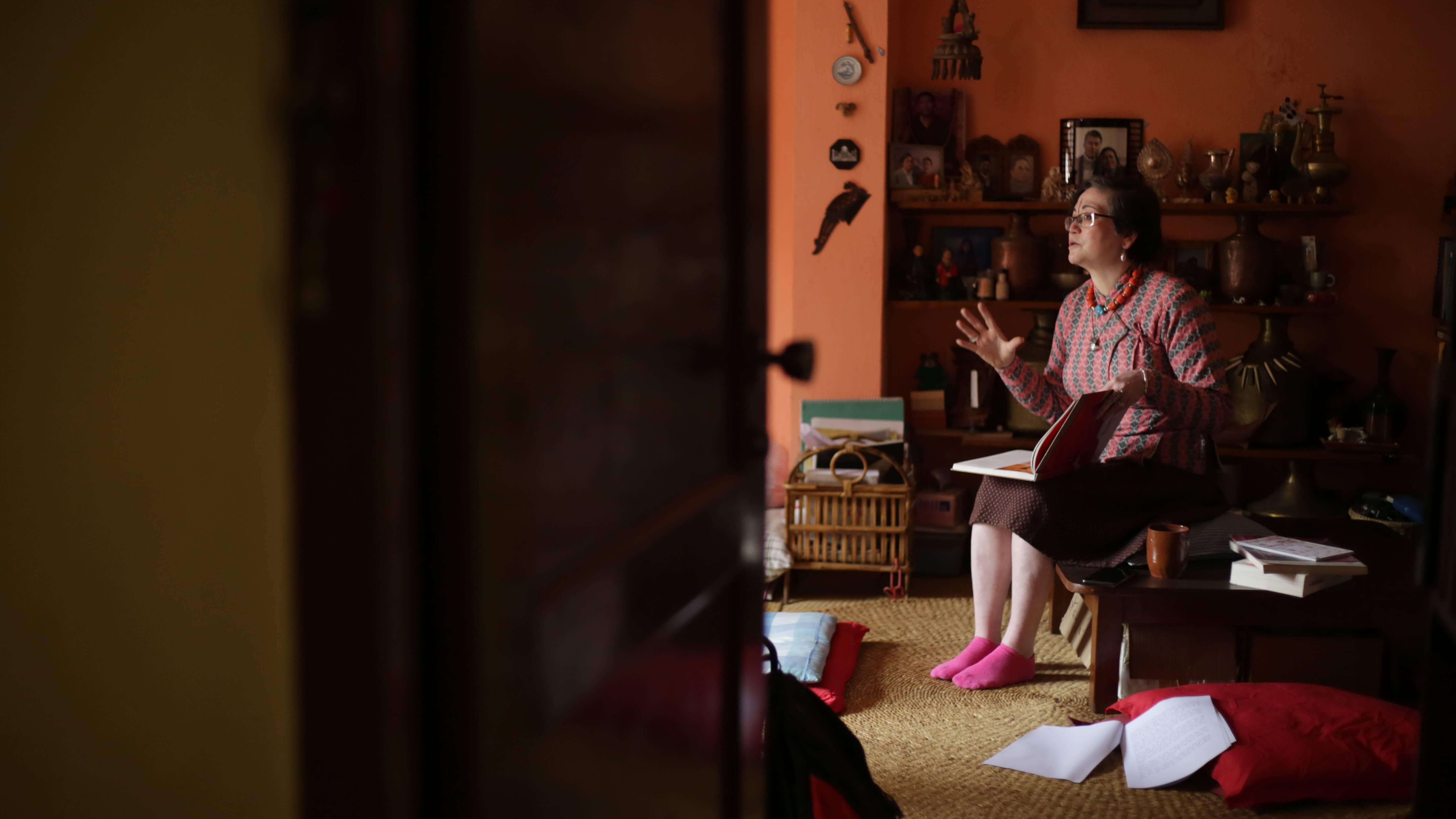Who were the Charitraheen Cheli?
On 5 March 2004, a clandestine feminist movement emerged in Kathmandu, and in a 40-point declaration to coincide with International Women’s Day, denounced Nepal’s patriarchal order.
They called themselves the Charitraheen Cheli (Women of Ill Repute) and their manifesto was a ‘declaration of independence’, denouncing dowry, gender-based violence and discrimination.
Point number 9 read: ‘We may have breasts, vaginas, clitorises and wombs; we also have kidneys, livers, lungs, stomachs, hearts, pancreases, intestines, fingers and toes, nails, arms, legs, pubic-hair, skin, eyes, ears, mouth, lips and tongues. All people have independent minds, spirits and souls.’

Long before the Women’s March and 15 years ahead of the international #MeToo Movement, Charitraheen Cheli in Nepal laid the groundwork for activism on issues that are just as relevant today as the country records daily cases of rape, killings and sexual assaults, with the state still treating its women as second class citizens.

The declaration and subsequent contributions in newspapers created ripples and rumours, and the group were eventually criticised for abandoning the cause, as its anonymous members drifted and their movement fizzled out.
Another point in the declaration read: ‘Which idiot would think women should have the permission of their fathers/ husbands/guardians to obtain passports, or to travel and work abroad? (The same idiots who framed our Civil Code, that's who). Having reached the age of 18, we exercise the right for complete freedom of movement. Instead of curbing this freedom, the state should fulfill its obligation to provide women with protection, via consulates, in the foreign countries in which we travel, work and reside.’
Seventeen years later, a government department last month tried to restrict the movement of women by requiring all females under 40 to have a written consent from a male family member and a ward official before travelling abroad.
‘Enough is enough,’ wrote the team in a phrase that has since been used in the Rage Against Rape rallies in Kathmandu. The group added that since marching from Bhadrakali to Singha Darbar with a placard is mostly a waste of time and bad for the lungs, it was resorting to ‘non-violent guerilla tactics’.
The 40-point declaration was also published in Nepali in Kantipur and gave way to speculation about the identity of its members. Guesswork bracketed them as ‘educated, English-speaking, foreign-bred, elite women from Kathmandu’.

‘We are underground because it’s fun down there,” retorted the Charitraheen. ‘We are everywhere around you, on the streets, in your office and even in your home. You are being watched!!!’
A counter-group calling itself Chatrirawan Chela (Men of Good Character) then emerged and disclosed that the Cheli had surnames like, Pradhan, Sharma, Ranjit and Thapa, noting that Ranjit was a ‘painter’ -- clearly identifying the artist Ashmina Ranjit.
Ranjit admitted this week in an interview that she was a member, adding: “We used to discuss if we should come out. But for many friends, because of family obligations and safety, it wasn’t possible. We were conflicted because we were all products of a conservative society, so we decided to remain unknown.”
Ranjit refused to divulge the identity of her comrades, but said they were singers, writers, journalists, musicians and filmmakers.
“Although we came from different backgrounds, we had one objective, which was to dismantle the structure of patriarchy,” Ranjit said. “We had been doing our own bit at the individual level before that, but it felt like it was essential to do it collectively.”

Some labeled the group as ‘elite’, but Ranjit said it got support from all kinds of people, including male friends. The seeds of the group were sown in 1998, when Ranjit had put up an art exhibit, ‘Women and Sexuality’ after which she was viciously criticised.
“I had a fight with my father and I left home. My work was branded as sordid. Fighting your family is harder than fighting the world,” she recalls. “There were alarming incidents of violence against women at that time. We wanted to retaliate and that’s how the declaration came about.”
The choice of the term ‘Charitaraheen’ was also often questioned. But Ranjit said that since women are often judged on the basis of their ‘character’, the group wanted to question society’s norm.

“Basically, who are you to define my character? That was the question we wanted to raise at society at that time. The patriarchy made women’s character a weapon against them. Charitraheen was our way of defying that,” she said.
Ranjit is glad that the group’s activism has carried on over the years in different forms, and a whole new generation of Nepali women are now carrying on the struggle: “It’s tiring, but we have no luxury to be tired.”




